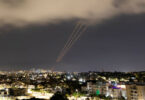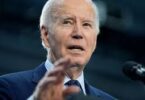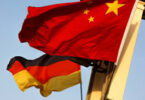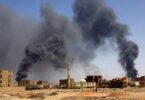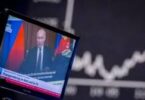Kourosh Ziabari
The resounding “No” the United Nations Security Council gave last Friday to a US-led initiative to extend indefinitely an arms embargo against Iran set to expire on October 18 may for some time be a favorite topic for discussion in think-tanks, media and academic institutions thirsty for new developments in the course of Iran-US relations.
However, there are ramifications to this episode that need to be spotlighted irrespective of the sensational hype about the “victory” of Iran and the “humiliation” of the United States. The fact that other than the Dominican Republic, no Security Council member, not even Washington’s staunch allies Britain, France and Germany (which abstained), sided with the US in proposing to prolong a conventional-arms embargo against Iran certainly spells a disappointment for a superpower that has been dominantly pulling the strings of international organizations, including the UN and its agencies, for so long.
On top of that, it is safe to assume the Security Council’s rejection of the US pitch was a triumph for Iran and a boost to President Hassan Rouhani, whose government is getting to grips with a troubled economy fettered by US sanctions, a hysterical foreign-exchange market and the tribulations of the Covid-19 crisis marked by an ailing health-care sector unable to cope with an unprecedented workload.
That said, neither Iran’s achievement nor the United States’ anticlimax should be aggrandized. Rather, what is significant in this saga is the near unanimity of the Security Council members, representing different political alliances, interests and geographies, in leaning toward multilateralism in an age characterized by the bold unilateralism of President Donald Trump and the coterie of neocons surrounding him.
To put it succinctly, the Security Council acknowledged that the Joint Comprehensive Plan of Action, although on life support, is still a valid pact and can be preserved.
For Iran, being entitled to import and export conventional arms such as tanks, fighter jets and warships has been one of the many dividends of the JCPOA inked in July 2015, and is one of the last lingering incentives for it today to remain in the deal after the United States unilaterally rescinded it in May 2018. So the fact that the 13-year arms embargo will not be renewed is certainly good news for Tehran.
Even so, Iran is still bereft of the majority of benefits it was supposed to garner from the JCPOA, including unrestricted oil exports to its clients, connections with international banks and financial institutions, the ability to export certain goods to the United States such as carpets and pistachios, and the ability to purchase civilian passenger planes and insurance for its tankers delivering petroleum and fuel to other countries.
This is why joyously celebrating the dismissal of the US draft resolution by Security Council might be naive, as the Trump administration has already choked off Iran’s economy successfully and put an end to the Islamic Republic’s diplomatic and political heyday by withdrawing from the nuclear deal.
Those who followed the developments surrounding Iran’s talks with the P5+1 that produced the JCPOA remember that immediately after the deal was agreed, an unprecedented influx of foreign companies and Western dignitaries into Iran started, and the once-pariah state felt the momentum of being seriously integrated into the international community.
Former leaders such as then-Austrian president Heinz Fischer, Greek prime minister Alexis Tsipras, Swiss president Johann Schneider-Ammann, Italian prime minister Matteo Renzi and Croatian president Kolinda Grabar-Kitarovic, as well as the current president of Finland Sauli Niinistö and Swedish Prime Minister Stefan Löfven, were only some of the numerous top Western politicians who visited Iran to seize the new opening to rebuild ties.
The two main-negotiators of the JCPOA, Foreign Minister Javad Zarif and then-US secretary of state John Kerry, were even rumored to have been nominated for a Nobel Peace Prize. But those halcyon days didn’t last long and Donald Trump’s withdrawal from the JCPOA, followed by draconian extraterritorial sanctions, catapulted Iran into a new period of stagnation and isolation.
The mentality of President Trump and what led him to exit the JCPOA are difficult to comprehend, given that frequent International Atomic Energy Agency reports had verified Iran’s compliance with the deal, and it was demonstrable that the Islamic Republic was sticking to its side of the deal in good faith, rolling back its nuclear program significantly in line with the provisions of the accord under strict international monitoring. The “maximum pressure” campaign advocated by the Trump administration has had its yields and letdowns.
A country that was once exporting some 2.8 million barrels of oil per day is now officially exporting – smuggling – an infinitesimal sum of 70,000 barrels per day and is in desperate need of foreign currency. International companies, including even the most loyal partners of Iran such as the South Korean electronics conglomerates Samsung and LG, have been part of a mass exodus from the country. It is more isolated than ever and there are not many nations who are happy to roll out the red carpet for Rouhani or Zarif.
However, these pressures, at the same time as chipping away at the Islamic Republic’s regional influence and economic revival, have induced it into taking a series of radical actions, including scaling back many of its JCPOA commitments and rekindling its uranium-enrichment activities, which are certainly not what Washington wants. So how should the UN Security Council’s action on the US proposal be interpreted against the backdrop of a nuclear deal that exists and hasn’t officially been pronounced dead yet?
As some have suggested, the cold shoulder the United States received from the 15-member body might be a precursor to the activation of a snapback mechanism by the Trump administration for the restoration of all pre-2015 UNSC sanctions. That gambit will also most probably end up where last Friday’s proposal finished up.
There is a crucial bottom line here: The Security Council’s vote was the affirmation of the importance of maintaining the JCPOA and ensuring it is enforced multilaterally and effectively. The US proposal was rejected mostly on account of the legal understanding the UNSC members shared that the United States is not a JCPOA signatory any more and cannot invoke its terms to enforce further restrictions on Iran through UN mechanisms.
This should serve as motivation for Iran to work to uphold the JCPOA and see that its benefits are fully realized. Iran’s nuclear program has certainly been a challenge of international proportions, and the JCPOA functioned as the best pathway to ensure it will not threaten world peace and security.
While the possibility of Joe Biden replacing Donald Trump in the November elections is a serious likelihood, as evidenced by national polls and surveys, the JCPOA should be shielded until a President Biden re-embraces it. The terms of the transaction are quite clear. The international community would like to make sure Iran will not produce nuclear weapons under any circumstances, and Iran wants to be able to have normalized trade relations with its partners and not be treated as an international outlier.
The JCPOA had granted both demands. With the Security Council throwing weight behind the JCPOA, the onus is on Iran and other signatories of the deal to enshrine and observe it fully, without hesitation or reservation.

